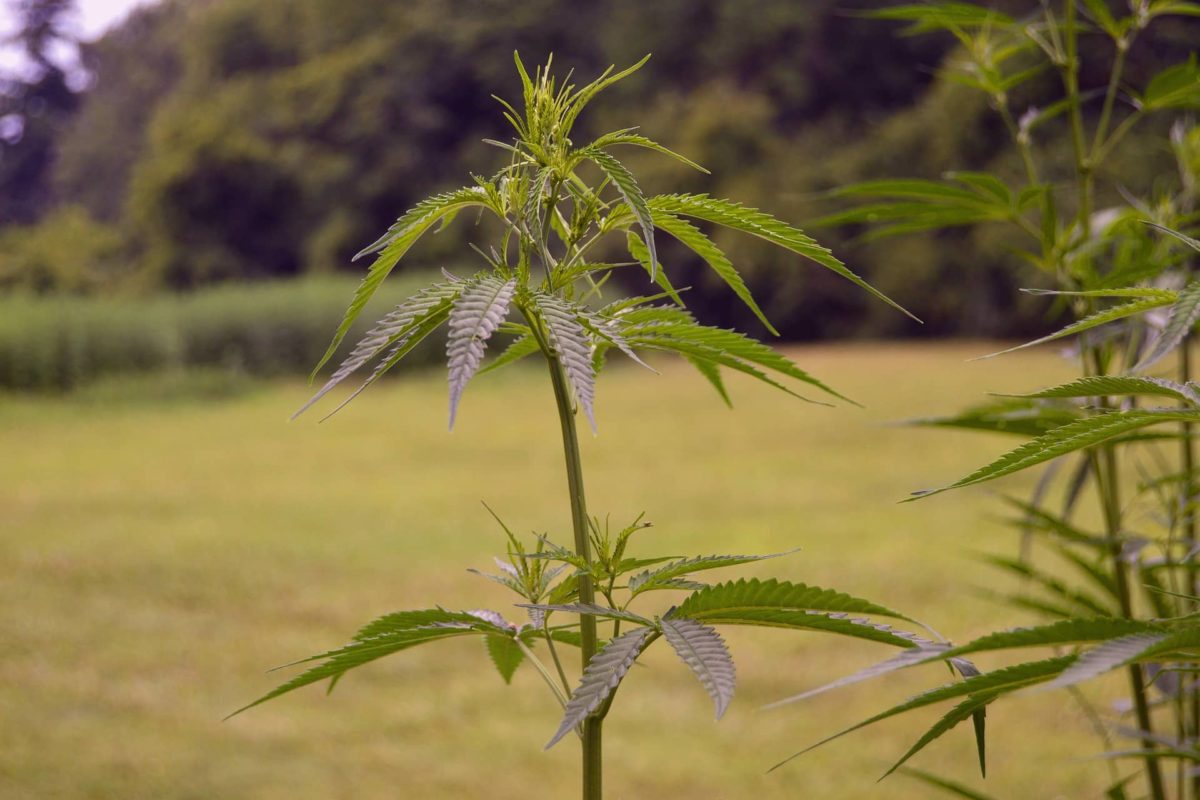Can Cannabis Assist Native Americans In Self Sovereignty

With the passing of the 2014 Farm Bill also came the passing of decades-long restrictions on hemp cultivation. Finally, Americans were allowed to grow hemp in the United States. With the bill’s passing came a surprising opportunity for Native Americans to ensure that their community retains equity in the Green Rush that is legalized, regulated cannabis.
There was just one loophole. Per this new legislation, hemp could be grown for “research purposes” and only in states that had their own separate cannabis or cannabis legislation already. Sounds complicated, right? It was.
However, with this new law came the above-mentioned unique opportunity for Native American tribes. Along with autonomously growing hemp on Indian reservations, Native Americans could also now partner with various states or universities to cultivate hemp on their land. You know, what little bit of highly sacred tribal land, not governed by a U.S. authority, that natives have left.
Prosperity and overall wellness begin and end with physical, mental and financial self-reliance. Sadly, those are privileges that were stolen from Indigenous people centuries ago. Like the critical disparities and disproportionate hurdles faced by Black and Latino people, Indigenous Americans are also perpetually victimized by white supremacy, toxic masculinity and a capitalist framework that holds the whole damn system up.
Despite the loopholes, 2015 could be seen as the beginning glimpses of hope for cannabis as a tool for much needed and long overdue Native American Sovereignty.
Cannabis and Native Communities
Native Americans have a long history of reverence for plants, herbs and other ecological and agricultural gifts. In fact, many of the products you see on the shelves are now made from naturally sourced plants, herbs, fruits and other naturally occurring plant derivatives.
One would hope that Native communities would be included, front and center, alongside Black and Latino Americans in the fight for racial justice. Yet in the burgeoning cannabis community, their stories are heard less. Thankfully, there are communities, organizations like the Native American Hemp Association and movements committed to also centering the voices of Indigenous Americans in the regulated cannabis industry.
Native American Dispensaries
Remedy Tulalip is a Native American dispensary, owned and operated, out of Marysville, Washington, that partners with “emerging and affiliated Native American Cannabis brands, well-known and loved brands… in addition to integrating some of the best practices from high-performing cannabis retail stores.”
Remedy Tulalip is committed to providing its customers with an exceptional retail cannabis experience, while also ensuring that the Indigenous voices aren’t left out or behind in the green rush.
“We have built a cannabis retail model that brings the same level of engagement, knowledge, and professionalism that we offer at all our Tulalip properties, and we are also partnering with emerging and affiliated Native American cannabis suppliers to help bring new values and voices to the forefront of this exploding industry,” said Les Parks, a long-time activist and member of Tulalip’s Board of Directors.
Nevada cannabis legislation included a stay on cannabis consumption in all residential locations until 2021, basically criminalizing cannabis consumption in large groups, even on private property. The law bans private property except those on Sovereign lands, which puts Native American dispensaries in a unique position.
Because of yet another loophole, NuWu Cannabis Market Place (and consumption lounge) was founded by the “Tudinu Tribe.” Otherwise known as the “desert people” of Las Vegas, they have lived in southern Nevada for more than 1,000 years.” (The Guardian, 2019)
Native American Hemp Associations, Advocacy Organizations and Advocates
Native American Hemp Association (NAHA) is an independent and self-governed 501(c)(3) organization with a variety of goals and resources available to natives in cannabis. They help support growing hemp on Indian reservations as well as other cannabis activities that support Native Americans.
The Apache Advocacy Group is a non-profit 501(c)(3) under the Sovereign Nde Nation, whose foundational commitment is to “utilize land for the benefit of natives” (Chiricahua Apache Nation, 2020).
Oak & Stone Consultants, based in California, provide services with a mission to “assist Tribes in creating self-sustainability through Economic Development projects that provide sound economic advantages resulting in growth and continued sustainability for their community.”
Native Workplace is an organization “founded in 1999 to foster tribal business development, provide community education, strategic planning, and workforce development training through performance-based contracts with tribes and federal agencies.” Cristala Mussato-Allen L.M.T. is the executive director at Native Workplace. Her contracts include: DOI Office of Indian Energy & Economic Development, HUD-ONAP, DOE-Tribal Energy Program, BIA 477 Program, NCAI, NCAIED, National Tribal Employment Rights Council and many tribal clients nationwide.
In addition to her work at Native Workplace, Cristala is a licensed myotherapist and herbalist in practice since 1990, according to her professional bio. As a certified specialist, Cristala has treated more than 30,000 people with traditional medicines and methodologies. Cristala went on to confirm that “more than 10,000” of those patients were treated with cannabis.” More than TEN THOUSAND. That’s a third of her total patients and proof that maybe it’s time we look past pharmacological interventions for mental, physical and spiritual pain.
Maybe it’s time we go back to the earth.

I’m trying to find a Native American dispensary that I used to deal with. Do you know of any in the Yucaipa, Ca. area? For some reason I can’t find them anymore.. Thanks for any help 🙏
[…] businesses contains more than 100 retailers and is updated regularly. And Canna Con published an article on the role of cannabis in furthering Native American sovereignty, which is one objective in […]
I am interested in becoming a dispensary for marijuana here in Florida. How much will it cost to get Marijuana or can your association teaches how to grow marijuana?
Yes for personal business on reserve.. .
Looking to become part of this the legal medical dispensery